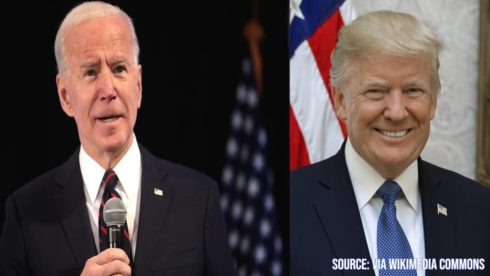President Joe Biden has announced his intent to veto a bipartisan bill aimed at expanding the federal judiciary by 63 permanent judgeships. The legislation, which passed the Senate and is now awaiting a vote in the Republican-controlled House, has sparked heated debates on Capitol Hill. President Joe Biden’s decision to veto the bill comes amid concerns that former President Donald Trump would fill 22 of these seats, potentially tilting the judiciary further to the right.
The bill was initially crafted to address the growing backlog in federal courts, with proponents from both sides of the aisle championing the initiative. However, the prospect of Trump appointing nearly a third of the new judgeships has turned a once-neutral solution into a highly partisan battle. President Joe Biden’s move reflects a calculated strategy to safeguard the judiciary from what Democrats see as undue MAGA influence.
Origins of the Judicial Expansion Bill
The judicial expansion bill was conceived to address the overwhelming caseloads in federal courthouses nationwide. With delays in court proceedings mounting, lawmakers from both parties initially agreed that increasing the number of judges was a necessary step. The original proposal promised a fair allocation of judgeships to the next three administrations, irrespective of party affiliation.
However, the bill’s timing has become a focal point of contention. Critics argue that passing the legislation now disproportionately benefits Trump, who remains a dominant figure in the Republican Party and a potential 2024 presidential candidate. The risk of adding conservative judges under his influence has caused many Democrats to reconsider their support.
Congressman Jerry Nadler Speaks Out
Democratic Congressman Jerry Nadler has voiced his concerns about the bill, highlighting the long-term implications of its passage. “Under this legislation, we all promised to give the next three unknown presidents a certain number of judges,” Nadler explained. “But for this deal to work, the bill had to be passed before Election Day. Now, the balance of power is at risk.”
Nadler’s remarks underscore the delicate nature of bipartisan agreements in today’s polarized political climate. While the initial framework aimed for neutrality, the changing political landscape has exposed vulnerabilities in its implementation. Democrats now fear that the bill could inadvertently solidify a conservative stronghold in the judiciary for decades to come.
The MAGA Influence and President Joe Biden’s Resistance
The potential appointment of 22 judges by Donald Trump has become a rallying cry for President Joe Biden’s veto threat. The president has made it clear that he views this as a critical moment to protect the judiciary from partisan manipulation. “If the choice is between too few judges or 22 new MAGA ones, it’s better to not have the judges at all,” a White House insider reportedly stated.
President Joe Biden’s stance has received widespread support from Democratic leaders who see this as a necessary measure to counteract Trump’s lasting influence on American politics. The former president’s judicial appointments during his term have already shifted the balance of several courts, including the Supreme Court, leaving progressives wary of further conservative dominance.
Implications for Federal Court Efficiency
While President Joe Biden’s veto threat addresses ideological concerns, it also raises questions about the operational efficiency of federal courts. The backlog of cases has reached critical levels in many jurisdictions, delaying justice for thousands of Americans. Proponents of the bill argue that expanding the judiciary is essential to alleviating this crisis, regardless of political implications.
However, opponents counter that judicial appointments should prioritize impartiality and balance over expediency. “Rushing to expand the courts without considering the long-term impact is a dangerous gamble,” one legal analyst noted. The debate highlights the ongoing struggle to balance efficiency with fairness in the nation’s legal system.
A Strategic Move for Democrats
President Joe Biden’s decision to veto the bill reflects a broader strategy by Democrats to wield their power effectively in the face of Republican opposition. By taking a firm stance, the president aims to prevent what many in his party see as an irreversible shift in the judiciary’s ideological makeup.
This move has energized Democratic voters, who view it as a sign of renewed resolve to counter Trump’s influence. As the Republican-controlled House prepares to vote, all eyes will be on whether President Joe Biden’s veto threat alters the bill’s trajectory. In the meantime, the president’s decision underscores his commitment to protecting democratic institutions from partisan overreach.














